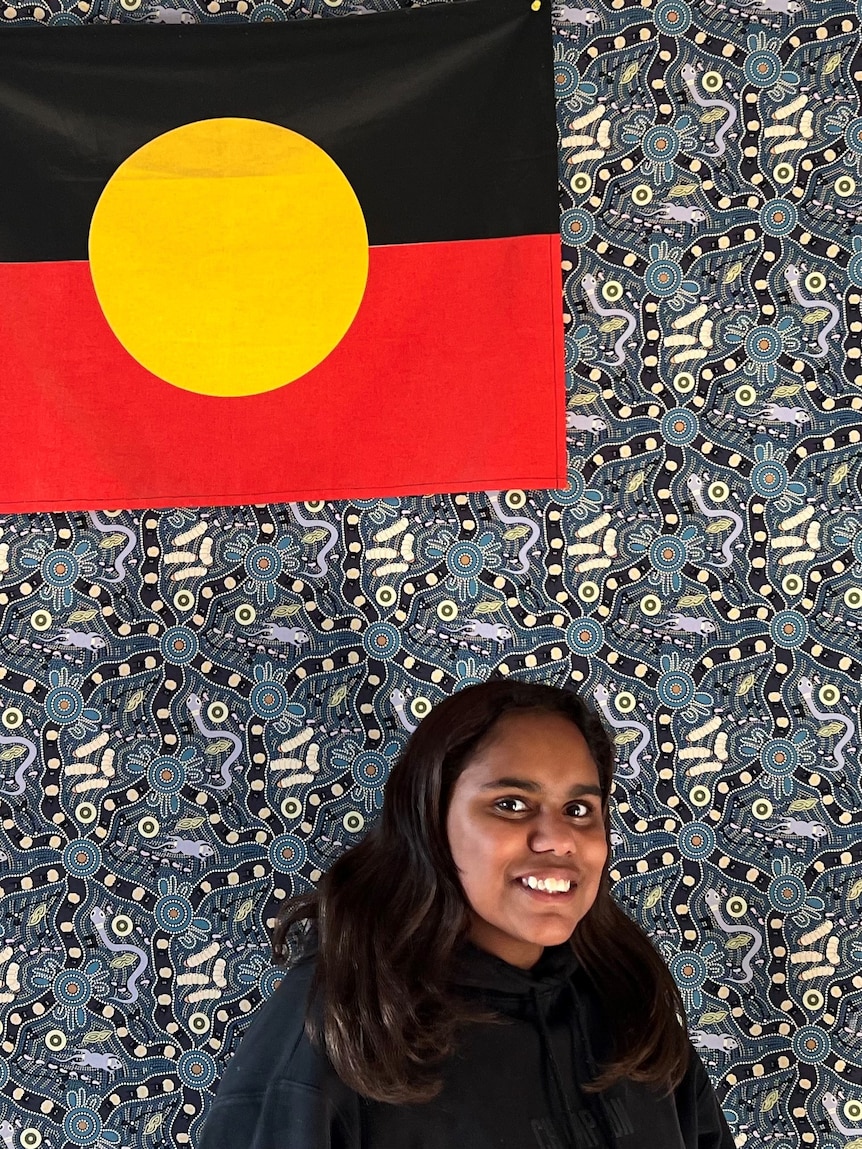As the sun sets over Port Lincoln on South Australia’s Eyre Peninsula, 14-year-old Wirangu teenager Bayly Dunnett knows she is minutes away from a safe pick-up driven by someone she trusts.
But that wasn’t always the case.
Port Lincoln has a population of 15,000 but virtually no public transport or rideshare services like Uber, and large distances between suburbs making taxis too expensive for young people who live in the town.
Wirangu and Mirning man Malcolm Miller, who worked as an Aboriginal educator at the Port Lincoln High School for 12 years, said the lack of general resources for young people was “poor” and created issues.
“They don’t really have a lot of opportunities in Port Lincoln. They can walk the streets and cause trouble,” he said.
Night bus getting kids off streets and home safely
After local community support group West Coast Youth noticed young people were congregating after dark, sometimes without a place to go, it began operating a Youth Night Bus last year.
Last week, the state government announced it would renew funding for the program — one of several programs helping Aboriginal youth in Port Lincoln.
Bayly said the bus helped her and her friends.
“[You use it] when you’re lost and you need a ride home,” she said.
She said the town needed 10 of the buses because they were so popular.
West Coast Youth manager for youth services Tony Perks said young people had been “wandering” after dark and “struggling to get home or choosing not to”.
“You will see groups congregating at [the service station] or on the streets, looking for something to do or a place to stay for the night,” he said.
Mr Perks said a lack of public transport in the regional town created headaches for Port Lincoln’s youth.
“It stretches past the evenings. Young people will be floating around our office in the hope of getting a ride home,” he said.
Aboriginal youth worker and Wirangu, Mirning, Kokatha, Yankunytjatjara and Pitjantjatjara man CJ Dodd, who often drives the bus, said kids trusted the drivers.
“It’s dark and time to go home and it’s unsafe for a 10-year-old to a 14-year-old to be walking home. The majority live a half hour’s walk away,” he said.
“We pick them up, drop them home, and make sure they have a safe place to go.”
Mr Miller said the service allowed kids to interact with strong role models like Mr Dodd, as well as avoiding a possibly “daunting” walk home at night.
Two new Aboriginal youth workers also announced
The state government also announced funding for two new Aboriginal youth workers who will be funded by KWY Aboriginal Corporation.
They will work at Port Lincoln Aboriginal Community Council (PLACC) and provide relief to Mr Dodd, who said he and his colleague Jayde Warren had been managing 170 young people between themselves for five years.
“Me and Jayde can only do so much,” he said.
Revival of former successful youth club
One of the ways the town will try to combat social issues is by reopening a much-loved free after-hours school care, mostly used by the Aboriginal community.
The Gidja (kids) Club was operated by PLACC for decades at nearby Mallee Park, but closed five years ago due to a lack of funding.
It gave kids a place to go after school when their parents were at work.
PLACC program manager Mandy Spalding, who also worked in the community as a lawyer in family violence, said when the club closed anti-social behaviour increased.
“We noticed an almost immediate deterioration in the behaviour and outcomes for some youth,” she said.
Elders in the community had been calling for the club to come back with new workers, she added.
Mr Miller said the return of the club and the youth bus were examples of resources that could help young people and their families.
“If we put in the right support and the right mechanisms … we can make it easier for our children to grow and prosper in the future,” he said.
Mr Dodd agreed.
“The only ones missing out [by not having programs like these] are the kids,” he said.




